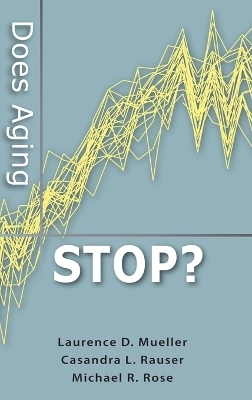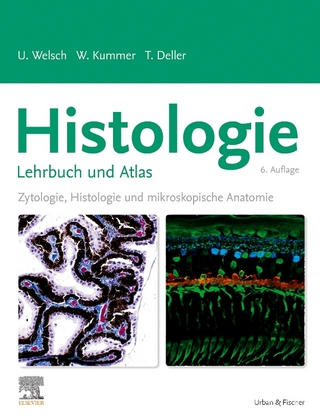
Does Aging Stop?
Oxford University Press Inc (Verlag)
978-0-19-975422-9 (ISBN)
Does Aging Stop? reveals the most paradoxical finding of recent aging research: the cessation of demographic aging. The authors show that aging stops at the level of the individual organism, and explain why evolution allows this. The implications of this counter-intuitive conclusion are profound, and aging research now needs to accept three uncomfortable truths. First, aging is not a cumulative physiological process. Second, the fundamental theory that is required to explain, manipulate, and probe the phenomena of aging comes from evolutionary biology. Third, strong-inference experimental strategies for aging must be founded in evolutionary research, not cell or molecular biology.
The result of fifteen years of research bringing together new applications of evolutionary theory, new models for demography, and massive experimentation, Does Aging Stop? advances an entirely new foundation for the scientific study of aging.
Laurence Mueller is Professor of Ecology and Evolutionary Biology at the University of California, Irvine. His research interests are in life-history evolution, aging, and the population genetic aspects of forensic DNA typing. Dr. Mueller is the author of over 100 research papers in these fields as well as two books: Stability in Model Populations and Evolution and Ecology of the Organism. Casandra Rauser is the Assistant Director of Research Development for the School of Biological Sciences at the University of California, Irvine. Michael Rose is Professor of Biological Sciences at the University of California, Irvine. He is the author of Evolutionary Biology of Aging (OUP, 1991), and was awarded the Busse Research Prize by the World Congress of Gerontology in 1997.
Preface ; Acknowledgments ; 1. Introduction: A Third Phase of Life ; 2. Discovery of Late Life ; 3. Late Life is Predicted by Hamiltonian Evolutionary Theory ; 4. Late-Life Mortality and Fecundity Plateaus Evolve ; 5. Genetics of Late Life involve Antagonistic Pleiotropy ; 6. Demography of Late Life with Lifelong Heterogeneity ; 7. Evolution of Lifelong Heterogeneity ; 8. Experimental Tests of Lifelong Heterogeneity ; 9. Death Spirals ; 10. Physiology of Late Life ; 11. Late Life in Human Populations ; 12. Aging Stops: Late Life, Evolutionary Biology, and Gerontology ; Appendix ; References ; Index
| Erscheint lt. Verlag | 13.10.2011 |
|---|---|
| Zusatzinfo | 69 line art |
| Verlagsort | New York |
| Sprache | englisch |
| Maße | 239 x 160 mm |
| Gewicht | 485 g |
| Themenwelt | Sachbuch/Ratgeber ► Gesundheit / Leben / Psychologie ► Ernährung / Diät / Fasten |
| Medizin / Pharmazie ► Medizinische Fachgebiete ► Geriatrie | |
| Studium ► 1. Studienabschnitt (Vorklinik) ► Histologie / Embryologie | |
| Naturwissenschaften ► Biologie ► Evolution | |
| Naturwissenschaften ► Biologie ► Genetik / Molekularbiologie | |
| Sozialwissenschaften ► Soziologie | |
| ISBN-10 | 0-19-975422-5 / 0199754225 |
| ISBN-13 | 978-0-19-975422-9 / 9780199754229 |
| Zustand | Neuware |
| Haben Sie eine Frage zum Produkt? |
aus dem Bereich


